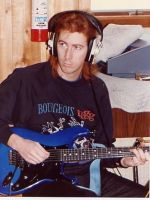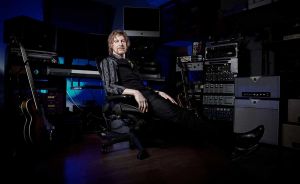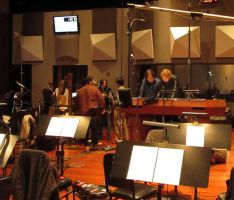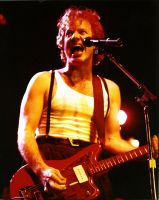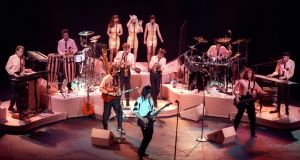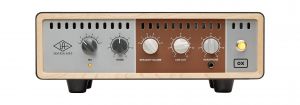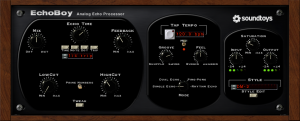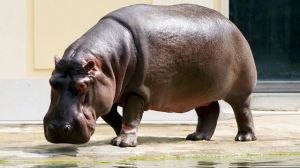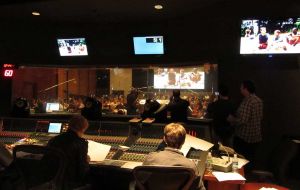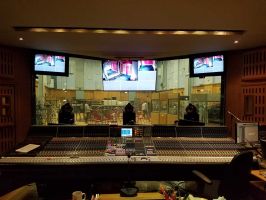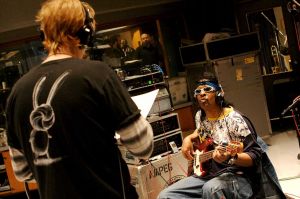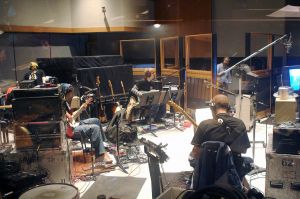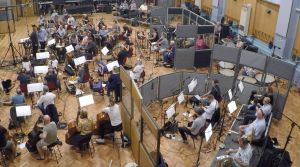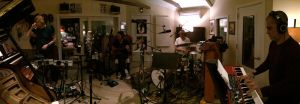Putting in the time: An Interview with Guitarist and Film Composer Lyle Workman
25th April 2020
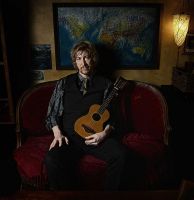 One of the best guitar players you have probably heard, but not necessarily heard of, is Lyle Workman. Lyle was a member of the San Francisco Bay Area favorite, Bourgeois Tagg band in the early 80's, and contributed to their best selling CD, Yoyo, which was produced by Todd Rundgren. He has also toured with several artists including Rundgren, Sting, Beck, and Frank Black.
One of the best guitar players you have probably heard, but not necessarily heard of, is Lyle Workman. Lyle was a member of the San Francisco Bay Area favorite, Bourgeois Tagg band in the early 80's, and contributed to their best selling CD, Yoyo, which was produced by Todd Rundgren. He has also toured with several artists including Rundgren, Sting, Beck, and Frank Black.
In addition to lots of session work as a guitarist, Lyle has released three solo albums under his own name Harmonic Crusader, Purple Passages, Tabula Rosa. His new offering, Uncommon Measures (coming in late summer) features a 63-piece orchestra recorded at Abbey Road Studio in London.
The reason you have probably heard Lyle is that for the last 20 years he has established himself as a prolific and successful film and TV composer. His scores include Superbad, Forgetting Sarah Marshall, and Get Him to the Greek, among many others. In fact, his feature film career began with a major hit, The 40-Year-Old Virgin.
Lyle gave the straightforward no BS answers that one might expect from someone who has built a career for themselves through hard work and determination. Talent plays a critical role, but so does the time that must be put in regardless of the natural ability one might have. Lyle's music training has primarily consisted of learning by listening closely and working things out. He is a truly excellent musician and guitar player, both electric and acoustic, and his work ethic can be a lesson to anyone hoping to have a career in music.
It was a pleasure to talk with him about some of the many things he has done.
You grew up in Silicon Valley?
Well, we moved around a bit, but I lived in San Jose, Sunnyvale and Santa Clara when I was a kid. I left San Jose in 1985 to be in the same city as Bourgeois Tagg, the band I had been in for three years. They were based in Sacramento, CA and I moved there once we started to make a decent wage playing clubs. I lived there for two years, the band broke up and I moved to Marin County.
Did your career take you to Los Angeles? Or did you just decide, I'm going to go to LA and make a career?
Unless you're a part of an established band, there isn't much work in the Bay Area. My career did lead me to LA because at that time, I was playing with Frank Black, who was the founding member of the band The Pixies. His band had broken up and he set off on his own, and that began roughly five years of recording and touring together. I loved his music and being in his group was creatively very satisfying. Since all of my employment was much through him, I made the move down south. I also had the desire for session work and whatever opportunities could arise from being in the thick of a music Mecca.
Do you work at home?
Yes. I have a home studio in the backyard. We bought our house 22 years ago and immediately began building the studio.
And you exchange stems with other players?
I do, but not often. Even though I have a drum kit in my studio and record them frequently, all the drums for my newest record "Uncommon Measures" were recorded elsewhere in a few different studios. A few of those rhythm tracks were cut at the recently defunct Band House Studios in Hollywood. Vinnie Colaiuta and bassist Tim Lefebvre tracked together to a click track and basic parts that map out the structure. This is my common work method.
You play keyboards as well?
I do but I am not proficient. I program things in chunks when it's difficult material. For the heavy lifting, I work with keyboard players, for my solo material it's mostly Jeff Babko, who is an amazing player.
It's unusual for someone to be scoring for a 63-piece orchestra without lots of formal training. How did that come about?
With the advances in technology along with the aid of great orchestrators and arrangers, those combined can fill in the gaps left by little training. My trajectory into orchestra was baby steps all along the way, starting at the very beginning with taking in orchestral textures in the music of the Beatles and Electric Light Orchestra as well as other pop music of the 60's and 70's. As I became more proficient on guitar, my interests in more complex forms began to take place and was into guitarists who at times had orchestral elements in their music, most notably John McLaughlin and Jeff Beck. Beck's Blow by Blow was a big influence which featured George Martin's string arrangements.
I didn't get much formal music education. After high school I took jazz improvisation and theory classes at West Valley College in Saratoga, CA. That's where I learned to read and write music. And much later after moving to L.A., I took an orchestration class at UCLA, with a great teacher, Scott Smalley. We studied scores by Jerry Goldsmith and others. I learned a lot from that class.
When I first started doing movies, they were largely non-orchestral based scores by design, but every now again there would be the call for orchestral cues. Having the vehicle with budgets to spring for a real orchestra, that's where I really dug in and apply what I had learned theoretically along with bringing my experiences of working with sample libraries on my own to the "real thing".
Another aid was the addition of a great orchestrator on board. John Ashton Thomas was recommended to me by a music contractor and we've been working together for the last twelve years. He orchestrated and conducted for my new album. John has worked on well over 100 films, including Black Panther and Captain Marvel. I've learned a lot through my work with him, asking many questions. His encouragement has given me a lot of confidence.
Are there any particular film composers with similar backgrounds to yours that inspired you when you were just starting on that path yourself?
Danny Elfman was certainly one, coming from being in a band as opposed to a heavily academic, music school environment. Clearly his background informed the delightfully skewed melodic content of his orchestral work, which makes it so highly unique and individual.
Uncommon Measures reflects a sophisticated sense of arrangement. How much of your current style has been informed by your pop music background, as opposed to the film scoring?
It's influenced by all my experiences. For my own material I give myself the freedom to go anywhere in the spectrum of music without limitation. I let the music define itself as it's constructed from a meditative space, free from preconceived conceptions as to what kind of record to make. This is in stark contrast to everything else I do in music, where there are defined parameters that have to be adhered to. I can say that with "Uncommon Measure", the primary focus is on the composition, the song. The basic melodic content has to hold the most weight and interest for me.
The biggest change between my last record and this new one is the presence of orchestra. I'm bringing what I've learned since my last offering, which was in 2009, to the present. There are nine pieces on the record, seven of which feature orchestra. I am a guitarist but a good portion was written on keyboard.
I see a Marshall amp head behind you. Do you use software amp sims or do you record everything with mics?
It's a 1969 100 watt Marshall Super Bass. It was modified by Cory Fite in Sacramento and it's a great sounding amp. Steve Lukather was in my studio recording a solo for an Oz Noy record and he wanted to buy it. I was like, nah. (laughs). There's a 4x12 cabinet in the tracking room.
I've got an (Vox) AC-30, and a bunch of other amps, but these days when I'm in the creative space and want to get right to it without the extra tech time, I've been loving the OX Amp Top Box by Universal Audio. It's ingenious. It's got several cabinet simulations and with your favorite amp head plugged into it, can shift through an array of different cabinets and choices of microphones. There are two virtual microphones on every cabinet and you can switch the mics out with a click. I'm using that on Uncommon Measures.
I'm also using a Fractal Axe-FX that models amps and effects. I usually start with the basic Marshall or AC30 presets and modify them. It truly is an amazing piece of gear. I will still record amps and cabs too. I like the combo of different working methods.
So, to your ears, they're accurate representations?
Yes. There are the meat and potatoes sounds, but a whole lot more. The great thing is that you can easily tweak on the fly, and that's a lot faster than moving microphones around or plugging in different amps and cabinets. And sometimes I'll stumble on a weird guitar sound that will fuel the creative process; hearing a new sound that steers me into a different direction – having all those tools at the ready can yield creative surprises. The digital modeling technology is so solid now, and it's more about the ears and application of the person using it rather than it being any sort of limitation, or perception of it being in any way inferior. But I still love to mic amps It just depends on the creative space my head is in.
What software do you like to use for processing your recorded guitars?
I absolutely love the Universal Audio plugins. The 1176s and their whole line of compressors. I love using their classic gear models. The Lexicon 480 reverb is great. The UAD Capitol Chambers sounds really nice, The Pultechs are great EQs. I also really love the FabFilter line, they are fantastic across the board.
My favorite delay plugin is EchoBoy by Soundtoys. That's an old stand by. I also use their Decapitator all of the time. It takes a thin sound and thickens it up. For example I use it on horns to make them a little meatier, with throaty lower mids. There's a great preset by Tchad Blake. It's called "Dark Crystal". I think the whole SoundToys line is fantastic.
Which orchestral libraries do you use the most?
I like Spitfire Studio Strings Professional. I use a lot of Spitfire libraries for orchestral needs. Albion Strings is great as is Adagio Strings from 8Dio. And another one I use and love is Cinematic Studio Strings and their Studio Brass. LA Scoring Strings are great for long legato glisses. For funk, big band or R&B horns, I use the libraries from Sample Modeling.
And you give your orchestrator [John Ashton Thomas] a MIDI file?
I send him a MIDI file and a two track mix. That's basically it. He imports my MIDI into Sibelius and if he makes any substantial changes, I request an audio mockup, which he does within Sibelius. He forgoes the built in library of sounds in favor of a very affordable sound set called Note Performer. It's remarkable how John can make his mock ups sound so good with a $150 sample library. From there, I listen and if I have additional requests, he'll address those. It's a back and forth process until it's done.
When you're doing music for film, and play it for the director or the music supervisor, do your use your own sample libraries?
Yes, the very last thing is recording the full orchestra. The mockups are sent to the music editor who will make QuickTime movies. They are forwarded to the director and if applicable to the situation, the producers, along with separate audio files so they can listen without dialogue. I'll get comments back and address them.
How thick does one's skin need to be?
Very. It can be awkward for directors to give musical direction if they aren't the least bit musical or have a hard time articulating what they want. Sometimes they have no idea at all, but don't want to let on that they don't, then compensate by giving bad direction that can ultimately hurt the composer and perhaps lose him or her the job, when they aren't the ones to blame.
In fact, one of the first things my agent told me, who I've been with since the get-go, was "You're a nice guy, but I want you to be prepared because you're going to be fired at some point." I was like, "what?" He said "it's common and all of the best guys, you name them, have had their scores replaced or let go in the middle of a show at some point. It's just the way it goes in this business."
So yeah, a thick skin and an ego in check are pretty much required. Sometimes it's a bumpy road, but other times it truly is great and very satisfying. The ups are well worth dealing with the downs when they occur.
You see a great movie and hear a great score, it's like, wow, that seems like it would be a lot of fun. Believe me at times it truly is, but sometimes, not so much. If a musician is coming from a life of making their own music, where they're calling all the shots, to an environment where someone is directing you in ways that seem counter intuitive to your artistic sensibilities, it can be hard for some personalities to take.
Composers have to be okay with that dynamic when it arises. It's important to balance the reality of the job with the romantic notion. But being that all of my professional life has been in the service of the group, or as a sideman or studio musician, I'm good with those parameters. Sporadic minor frustrations aside, I really do love the work, it has been paramount to my growth as a musician and for that I am very grateful.
Speaking of romantic notions, was that one of the reasons you decided to go to Abbey Road Studios for your new album?
The Beatles are ground zero for me. That started everything. And, in addition to being a landmark, Abbey Road is a fantastic studio. The level of musicianship in orchestral players there is so high—the music is set down in front of them, they look at it briefly, one, two, three, record. Being that I could only afford one long day with orchestra, I wanted to go with who I felt would nail it most efficiently.
What about Superbad? That's a lot of funky horns—did you use a live band for that one?
Oh yea, that's a story. When I met with the director Greg Mottola and Judd Apatow, who produced, we watched footage that already had '70s funk and soul music temped in, and the song choices were of the same ilk. We talked about the original score being in that world.
I'd played funk music in bands and I love that genre. We had the support of Sony, which meant we could hire a dream team; the musicians that made that iconic music in the '70s. We first reached out to Bootsy Collins, then Bernie Worrell and the two James Brown drummers (Clyde Stubblefield and John "Jabo" Starks). Along with Booty's brother Catfish and me on guitar, that comprised the core Superbad band. We also had Jerry Hey and his horn section, and Jeff Babko on extra keys. Hiring the creators and innovators of that music brought such authenticity to what I wrote.
We recorded at Capitol Records for five days, and being that Bernie was the only reader in the core band, we had to rehearse every cue, more akin to a standard band rehearsal, going over songs. When we started to record, I quickly learned that the standard practice of a click track, to assure the music lined up with the picture, was ruining the vibe, so it was used solely to count us in. Because of extra rehearsal time it took a little longer to get to the gold, but it was well worth it. It was also beautiful because it was a reunion of old friends, a lot of love expressed, laughter and experiences they recounted, which I loved hearing during our breaks. It was a great all around experience. Sadly, Clyde, Jabo, Bernie and Catfish have passed since then and I count my blessings to have made music with them.
What's the most important thing you have learned since your career started?
It's about the work. Putting in the hours to make it happen. One could have natural talent and innate ability, but the crucial element to attain one's peak powers is the day after day, nose to the grindstone, work. It takes diligence, perseverance and commitment. I saw this work ethic consistently among the great artists and musicians I've had the pleasure of working with.
The work comes in very fast in film scoring. Did you have to plan the Uncommon Measures or was it happy circumstance that you had this window between projects?
I worked on this record off and on for five years, in-between scoring work. Knowing that with all the travel added in, I was going to be in England for a week to record the orchestra, I simply had to make an educated guess of when I'd be free. I had to book the studio and travel plans several months in advance. If anything new came up, I was prepared to turn it down. I scored the 40-Year-Old Virgin in 2004 and for several years I had to be ready to take on work at a moment's notice. I've had Thanksgivings by myself or with an assistant while my family was out of state enjoying the holiday, but in recent years I'm more about creating balance. It's OK to be committed to work but other aspects of life must be nurtured.
I'm so grateful how things have turned out in my career. If it wasn't for the film work, it's quite possible I wouldn't have had the opportunity to work with orchestras, which personally is the ultimate, biggest, baddest playing field. Due to the myriad of musical places film has brought, it has expanded my boundaries and contributed to much musical growth.
What's your next project?
My new album, "Uncommon Measures" should be out by late summer or fall. That's what I am most excited about.
Lyle continues to score films, finishes production of the solo CD Uncommon Measures, and helps his son with the balance between artistic expression and reality.
KVR Audio, Inc.
www.kvraudio.com
